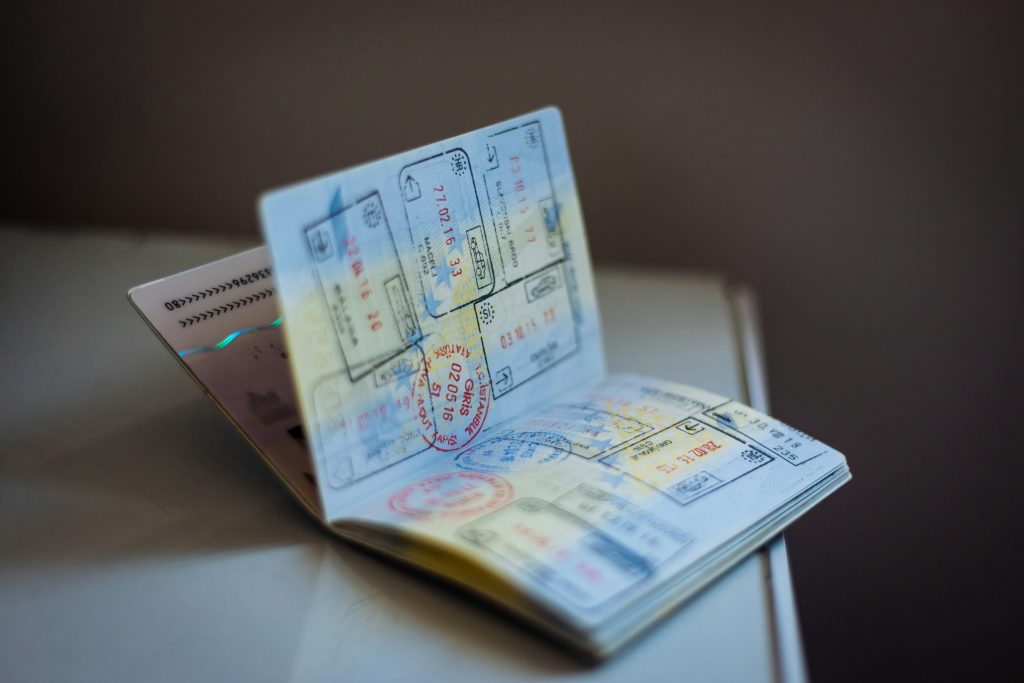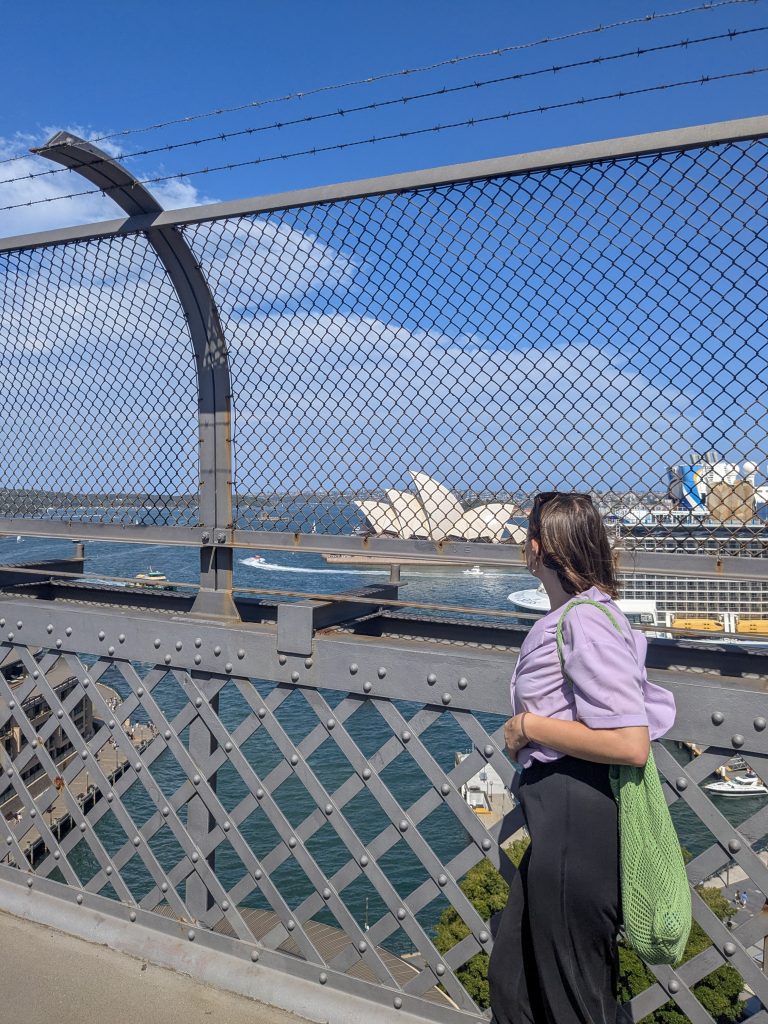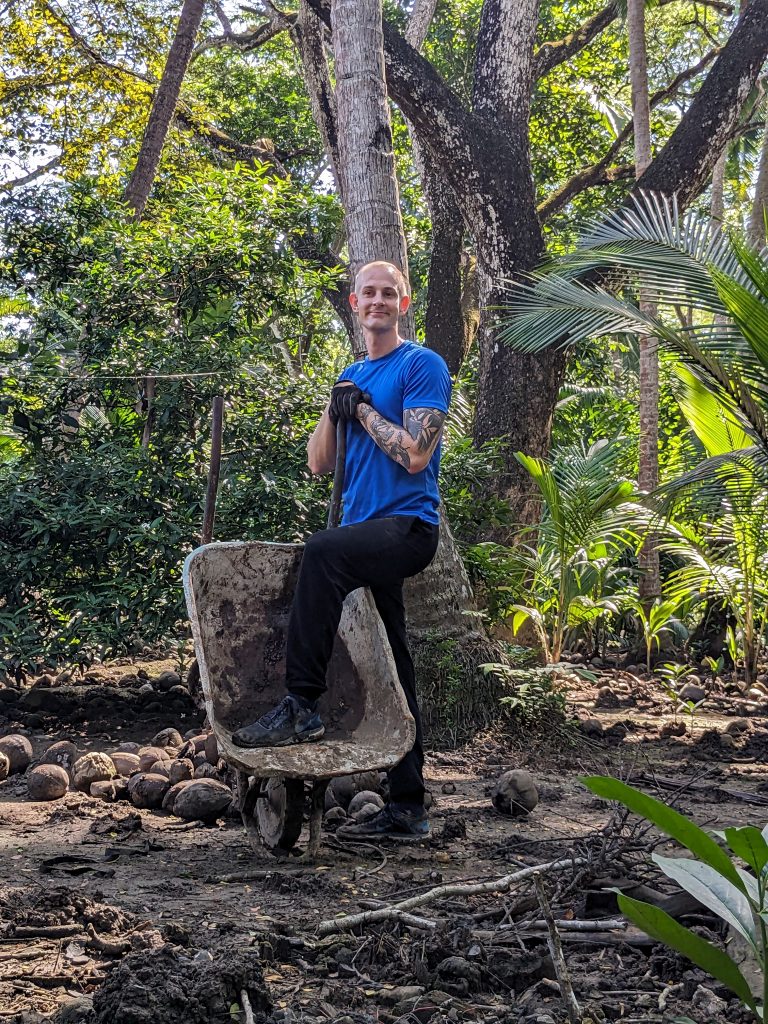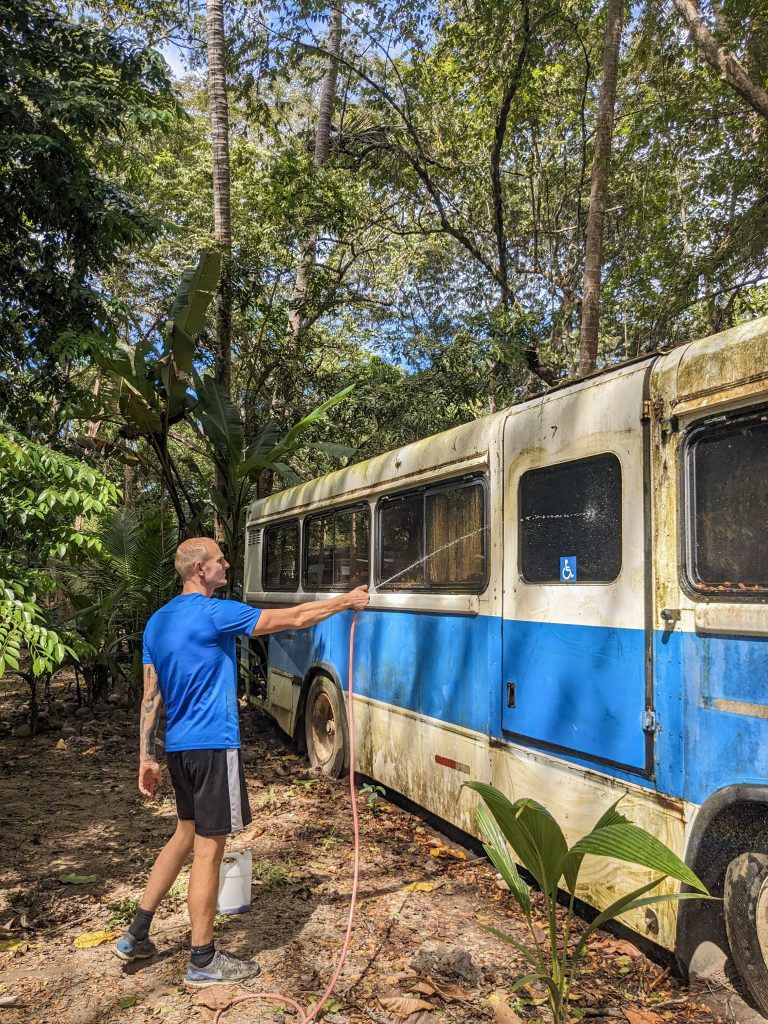As some of you may know, Emily and I are currently on a Working Holiday Visa (417) here in Australia. While we were excited to embark on this adventure and experience life down under, there have certainly been a few surprises along the way. To put it lightly, settling into life here has been a lot more complicated than we initially anticipated! From navigating visa requirements and choosing an area to live in, to dealing with the distance from our friends and family back home, there are some things we wish we had thought a little more about before moving to Australia! With that in mind, we thought it would be helpful to share with you the 3 things you NEED to know before moving to Australia on a Working Holiday Visa!
Why we chose the Working Holiday Visa
Before heading to Australia, it’s important to consider several factors that can impact your experience. The first question to ask yourself is: What type of visa best suits your needs and lifestyle? Are you looking to take on unskilled work to fund your travels, or are you hoping to advance in your career? The visa you choose will significantly influence your journey down under.
We decided on the Working Holiday Visa because it was the cheapest and had the fastest processing time. While we did consider the 189 Visa, we were still waiting on the outcome of my skills assessment. We also weren’t too keen on spending thousands of Euros on a visa without ever having lived in, or in my case, even visited Australia!

The 417 Visa allowed us to get to Australia sooner and avoid the looming winter back home. In theory it gave us the flexibility to work, travel, and explore the country before making any major commitments. Plus, with recent changes for British citizens no longer needing to complete 88 days of rural work, it felt like the most risk-free way to try out life down under. At the time, it felt like a no-brainer!
Finding Work Can Be Challenging!
The 417 Working Holiday Visa is often marketed as the perfect opportunity to work a bit, travel a lot, and enjoy Australia’s laid-back lifestyle. Before arriving, I had heard stories of people easily landing jobs as soon as they touched down. I was assured by recruiters that finding work in Australia would be pretty simple. Regardless of which visa I was on. However, unfortunately, the reality has been that moving to Australia on a Working Holiday Visa can make finding work pretty challenging.
Unfortunately, Australia isn’t immune to the challenges many countries around the world are facing. In recent years, Australia has seen a significant shift in the job market, with competition for roles increasing across various sectors. The cost of living has also skyrocketed, putting pressure on both locals and newcomers trying to build a life here. Like everywhere, things are changing fast. Job security feels less certain, housing is harder to afford, and the gap between wages and expenses is growing.
As a result of this finding work in Australia has been a little harder than we had anticipated. Having worked as a social worker in both the UK and Germany, I had never faced trouble securing a job. To be honest, prior to arriving, I had barely written any cover letters and usually was able to find jobs with minimal effort. I therefore assumed that my experience would be similar here, especially given the huge demand for social workers. However, this has proven not to be the case whatsoever!
Initially, we moved to Newcastle, NSW, thinking the job market would be less competitive than in larger cities like Brisbane, Melbourne, or Sydney. We believed that fewer people on Working Holiday visas in this area and that this would make finding work easier.
Most employers in Australia prioritise Australian nationals, permanent residents, and those on other work or student visas. Working Holiday Visa holders often end up at the back of the queue. Their applications are frequently filtered out on sites like Seek or Indeed, making the job search feel like finding a needle in a haystack!
Another unexpected hurdle is how much Australian employers value local experience (and discount international experience). We assumed our work experience from the UK and Germany would be recognised, but many employers place significant emphasis on Australian work experience even for the exact same role we did back home. This creates a bit of a catch-22. You need a job to gain local experience, but without it, you can’t secure a position.
Anyway, after a few weeks of struggling in Newcastle NSW, we realised we would need to move to Sydney in search of work. The competition for jobs was simply too tough in Newcastle. Especially when competing with locals who have full working rights!

If you’re on a Working Holiday Visa, I’d recommend heading to a rural area or a big city like Melbourne, Sydney, or Brisbane. These locations make finding work easier. We mistakenly moved to Newcastle, NSW, which is one of the most competitive job markets in Australia. Unemployment rates there have reached as high as 7.1% in recent years. This makes it even harder for WHV holders to secure jobs. Avoid competitive markets like we did!
Do your research! Check vacancy rates in the areas you want to live and don’t rely on recruiters assuring you it’ll be fine. On a Working Holiday Visa, you’ll likely need to apply for jobs you’re overqualified for. Taking a step back in your career may be necessary to secure work.
Taxes, Healthcare and Superannuation
Let’s fast forward a bit. Imagine you’ve managed to find a decent job in Australia and are starting to earn a steady income. Naturally, you’d assume that paying taxes means you’ll be taxed at the same rate as locals and receive the associated benefits, right? Unfortunately, you’d be wrong!
As a Working Holiday Visa (WHV) holder, your earnings are taxed differently from Australian residents. While Australian residents benefit from a tax-free threshold on the first $18,200 of their income, WHV holders do not!
If you’re working with a registered Working Holiday employer, the first $45,000 of your income is taxed at a flat rate of 15%,. Any income above $45,000 is taxed at 32.5%. However, if your employer is not registered as a Working Holiday Maker employer, you’ll be taxed at the non-resident tax rate of 32.5% on all income up to $120,000. Higher rates will apply beyond that. This can significantly reduce your take-home pay and make managing expenses more challenging!
Access to Medicare while on a Working Holiday Visa in Australia can depend on your country of origin. It all depends on whether your nation has a reciprocal healthcare agreement with Australia (here’s a List of all RHCA Countries). For many, coming from countries like the UK or certain European nations such as Italy or Sweden, Medicare provides limited public healthcare coverage, including essential medical treatments for those on temporary visas.
Unfortunately, this wasn’t the case for us. Although we hold British passports, we had been living in Germany before moving to Australia on a Working Holiday Visa. Unfortunately, Germany does not have an RHCA with Australia. As a result, we weren’t eligible for Medicare. This meant we had to arrange private health insurance, which added another layer of cost and complexity to settling in. This is crucial for anyone moving to Australia, especially if public healthcare access is limited.
This means that if you fall ill, require medical treatment, or need other social support, you’ll need to rely on private health insurance … or pay out of pocket. The lack of these benefits, typically available to taxpayers, can leave you feeling excluded. Essentially, you’re contributing more financially without receiving the same level of security and support. This can add an extra layer of stress when living and working abroad.

Compare this to Germany—if you’ve worked there, your pension savings are still yours when you leave. You also won’t face any massive tax penalties for accessing them abroad. Similarly, in the UK, you can claim your state pension while living overseas. It’s even adjusted for inflation to keep its value! These systems feel a lot more straightforward and generous for international workers. Especially compared to the Australian system!
It might be worth considering paying into a private pension fund while you’re in Australia. A private pension could be better for you, especially if you are only planning on staying for a couple of years. It’s an extra expense now, but it could save you money and hassle later down the line.
Rural Work Struggles: What Working Holiday Visa Holders Need to Know
Luckily for us, we don’t have to deal with the stress of rural work to extend our visa, but we’ve definitely heard enough horror stories to feel relieved. For many travellers on the 417 visa, 88 days of rural work is a necessity, and finding those jobs can be a nightmare. The competition is fierce, with many people fighting for the same positions, which leaves employers with all the power. We’ve heard from others who have been offered low wages, gruelling hours, and subpar conditions just to complete their required days.
Many have reported being asked to work in harsh conditions with little regard for their well-being. Others have found themselves living in overcrowded, substandard housing, all while trying to make ends meet. For many, the reality of rural work, which is often part of the 88-day requirement, is far from the picturesque, carefree experience it’s made out to be. Instead, it’s a gruelling and, at times, exploitative way to extend their visa.


Here’s me doing some farmwork in the Costa Rican Jungle!
I’m not saying that all rural work experiences are negative! However, it’s important to be aware of the potential challenges so you can make a well-informed decision before committing. Some people have had positive experiences, but for many, the realities can be far tougher than expected.
If you are moving to Australia on a Working Holiday Visa and are planning to do rural work, I’d definitely suggest looking through some of the rural work groups on Facebook (e.g. Back Packer Jobs) before arriving. These groups can give you much-needed insight into the competition for these positions and the real conditions on the ground. Helping you make an informed decision before committing to the Working Holiday Visa. It’s also worth applying for some jobs on Seek before you arrive. This will give you a better idea of the competition for roles. You’ll be able to see how many applicants per job listing. This will help you gauge the amount of competition for rural job roles.
What We’ve Learned About Life in Australia on a Working Holiday Visa
Anyway, the purpose of this post is not to scare you away from moving to Australia on a Working Holiday Visa. We just wanted to give you a more realistic idea of the challenges you might face when you are here.
Sure, our time here has been a bit more stressful than we expected, with a few unexpected setbacks, but things are starting to look better since we’ve headed down to Sydney. Australia really does have a lot to offer—the landscapes are breathtaking, the people are incredibly friendly, and the wildlife is something you won’t find anywhere else. We hope this article, informs you of some of the issues you may face when moving here and stops you from making some of our mistakes!
Thanks so much for taking the time to read this post! We’re hoping that our next update on our time in Australia will be a bit more upbeat. In the meantime, we’d love to hear from you! Feel free to share your thoughts or your own experiences with a Working Holiday Visa!
Click here for our latest blog posts! And here for our Budget Travel Guides!
Pingback: Glenrock National Park: A Guide to Hikes, Bikes & More -